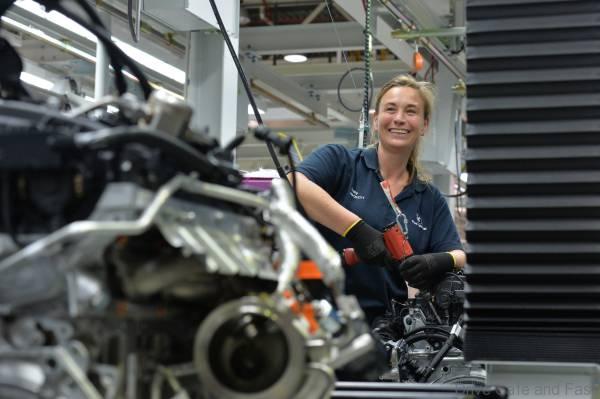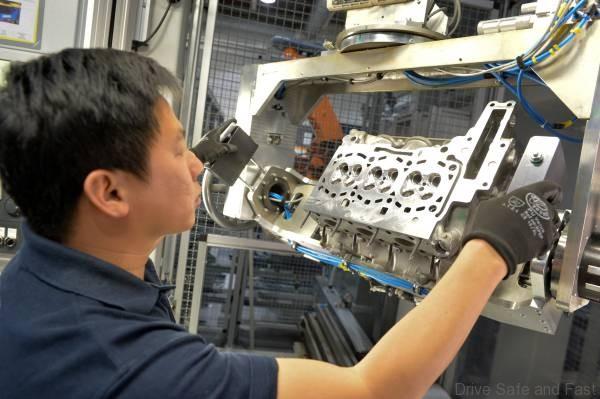A large investment programme to develop the BMW Hams Hall engine plant near Birmingham is complete. The production of new three and four-cylinder engines is already being ramped up on brand-new production lines, and over one million components will be machined at the plant for the first time this year as supply extends to other plants in the Group. The investment project, part of £750 million that has been spent across BMW Group’s UK manufacturing sites, has ensured the Hams Hall site remains a state-of-the-art facility, capable of producing the next generation of engines and securing a long-term future for the plant.
Engines, as well as machined components manufactured at BMW Plant Hams Hall contribute to a range of cars across BMW Group’s product portfolio. This includes MINI – the new Clubman model goes on sale in just a few weeks’ time, as well as the new BMW 7 Series, also launched this month. Development of the site is another piece of the jigsaw in BMW Group’s global strategy for engine production. The Hams Hall facility is now operating alongside other plants in Germany and Austria, all producing the same new family of next generation engines.
Production of a small number of new engines was first introduced at Hams Hall last year. Three-cylinder BMW TwinPower Turbo technology 1.5-litre petrol engines are hand-built exclusively at Hams Hall on a special production line for the BMW i8, the first purpose-built, plug-in hybrid sports car. This engine has already contributed to a series of award-wins for the revolutionary vehicle as well as two class and an overall win at the International Engine of the Year awards.
Overall, the new Efficient Dynamics high-tech engine family includes petrol and diesel engines, all employing TwinPower Turbo technology and ranging from 1.5 to 3.0 litres. With different power ratings, the engines can be adapted to a variety of vehicle concepts. Commonality across the engines makes it possible to be extremely flexible in achieving significant efficiences at high production volumes, as well as being able to produce additional special versions of the engines at relatively small volumes across the network of engine plants.







